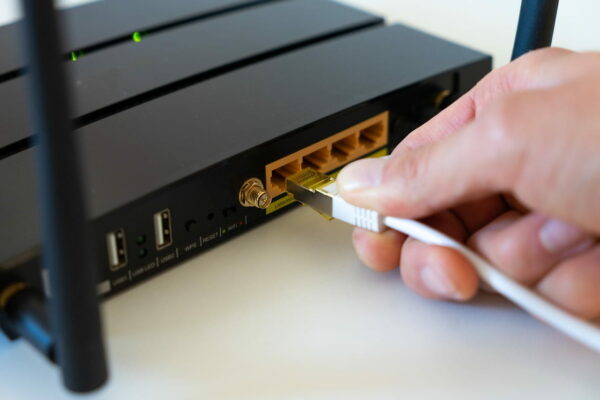In the ever-evolving landscape of information technology, where connectivity and speed are paramount, routers in computer networks play a pivotal role in ensuring seamless data transmission. These unassuming devices are the unsung heroes behind the scenes, directing data packets through intricate paths, optimizing efficiency, and enabling us to access the digital world with remarkable speed.
In this comprehensive guide, we’ll delve into the realm of routers in computer networks, exploring their functions, types, benefits, and much more.
Router in Computer Networks: Navigating the Basics

A router in computer networks serves as a traffic manager, efficiently directing data packets between devices within a network. Whether you’re streaming your favorite movie, sending an email, or engaging in a video call, routers ensure that your data takes the most efficient path to its destination.
How Do Routers Work?
Imagine a bustling city with various roads leading to different destinations. Routers function like intelligent traffic controllers, analyzing incoming data packets and determining the most optimal path for each packet to reach its intended recipient. They use routing tables and algorithms to make split-second decisions, avoiding congestion and minimizing delays.
Types of Routers
- Home Routers: These are the routers you often find in homes and small offices. They connect multiple devices to the internet through a single connection, usually provided by an Internet Service Provider (ISP).
- Enterprise Routers: Designed for larger networks, such as those in corporations or universities, these routers handle more complex traffic and provide advanced security features.
- Core Routers: Operating at the heart of an internet service provider’s network, core routers manage substantial data traffic between different networks.
- Edge Routers: Placed at the edge of a network, these routers handle incoming and outgoing data between local devices and external networks.
Benefits of Routers in Computer Networks
- Efficient Data Routing: Routers ensure that data takes the shortest path, reducing latency and enhancing network speed.
- Network Segmentation: By dividing networks into subnets, routers enhance security and manageability, keeping sensitive data separate from general traffic.
- Load Balancing: Routers distribute traffic evenly across multiple paths, preventing network congestion and optimizing performance.
- IP Address Management: Routers assign unique IP addresses to devices, enabling proper communication within the network and on the internet.
Exploring Router Configuration and Management
Configuring and managing routers effectively is vital for maintaining a well-functioning network. Let’s explore some key aspects of router setup and management.
Initial Router Configuration
Setting up a router involves connecting it to a modem, accessing its web-based interface, and configuring essential settings. This typically includes setting a secure administrator password, configuring Wi-Fi settings, and ensuring firmware is up to date.
Quality of Service (QoS) Settings
QoS settings allow you to prioritize certain types of network traffic, ensuring that critical applications like video conferencing or online gaming receive sufficient bandwidth for optimal performance.
Security Considerations
Routers play a crucial role in network security. Implementing strong encryption protocols, enabling firewalls, and regularly updating firmware are essential steps to safeguard your network from potential threats.
FAQs About Routers in Computer Networks
Can I use any router for my home network?
While you can use various routers, it’s recommended to choose one that meets your network’s needs, considering factors like the number of devices and internet speed.
How do routers handle data traffic congestion?
Routers manage congestion through techniques like buffering, prioritization, and load balancing, ensuring efficient data flow.
Can I upgrade my router’s firmware myself?
Yes, most routers allow users to update firmware through their web interface. Check the manufacturer’s guidelines for the correct procedure.
What is the significance of the router’s placement in a network?
Router placement affects signal strength and coverage. Position the router centrally for optimal coverage throughout your space.
Is a wired connection better than a wireless connection?
Wired connections generally offer lower latency and higher stability compared to wireless connections, making them preferable for activities that require consistent performance.
How can I enhance my network’s security through the router?
You can enhance security by enabling WPA3 encryption, setting up a strong password, disabling remote management, and regularly updating both router firmware and connected devices’ software.
Conclusion
In the dynamic realm of computer networks, routers stand as indispensable tools, orchestrating the flow of data with precision and efficiency. From their role in directing data packets to their various types and benefits, understanding routers’ significance empowers us to make informed decisions in optimizing our networks. As technology advances, routers continue to evolve, shaping the digital landscape for a more connected future.